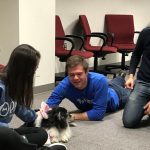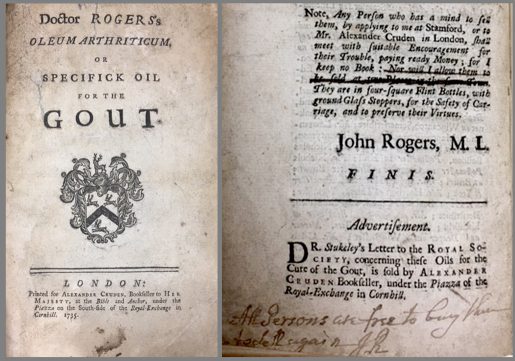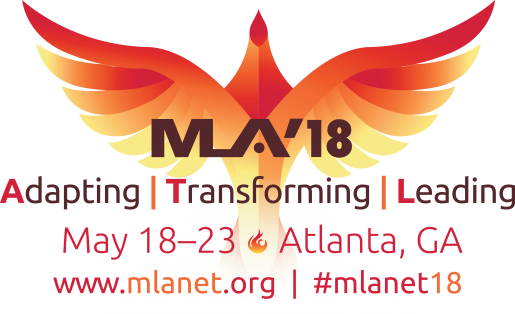 HSLS librarians were active participants in the Medical Library Association’s Annual Meeting held Atlanta, GA, from May 18-23.
HSLS librarians were active participants in the Medical Library Association’s Annual Meeting held Atlanta, GA, from May 18-23.
Paper Presentations
Carrie Iwema, Coordinator of Basic Science Services, presented “Creating New Research Services: Library Support for Electronic Lab Notebooks.” Co-author was Melissa Ratajeski, Coordinator of Data Services.
Rose Turner, Research and Instruction Librarian, presented “Exploring the Role of DistillerSR in Successfully Completing Systematic Reviews.” Co-author was Mary Lou Klem, Research and Instruction Librarian.
Lightning Talks
Carrie Iwema, Coordinator of Basic Science Services, presented “Programming for Biology: Learning the Language to Meet the Needs of Biomedical Researchers.” Co-authors were Melissa Ratajeski, Coordinator of Data Services, and Ansuman Chattopadhyay, Assistant Director for Molecular Biology Information Services.
Melissa Ratajeski, Coordinator of Data Services, presented “Leading the Data Discovery Charge: A Cross-Institutional Collaboration to Index Research Data.” Co-authors were Carrie Iwema, Coordinator of Basic Science Services, Joel Marchewka, Web and Application Programmer, Angela Zack, Knowledge Integration Lead, et al.
Special Content Session
Kate Flewelling, NNLM MAR Executive Director, and Elaina Vitale, NNLM MAR Academic Coordinator, presented “Training, Program Ideas, Health Information Resources, Funding,” as part of a special symposium for public librarians.
Other Conference Activities
Barbara Epstein, HSLS director, concluded her year as MLA President by chairing the Board of Directors’ meeting, the MLA Business Meeting, and several other sessions. She also delivered her presidential address, titled “Engaging the Future.”
Michele Klein Fedyshin, Research and Clinical Instruction Librarian, and Andrea Ketchum, Research and Instruction Librarian/Scholarly Communication Liaison, co-chaired the MLA Ad Hoc Committee to Review Core Clinical Journals meeting.
Kate Flewelling, NNLM MAR Executive Director, was elected to the MLA Nominating Committee. Her one year term began at the end of MLA 2018. She also completed a three-year term as Section Council liaison to the Membership Committee.
Carrie Iwema, Coordinator of Basic Science Services, was a panelist for the Data Catalog Collaboration Information Session, and attended committee meetings as the Education Steering Committee liaison to the Education Annual Programming Committee.
Melissa Ratajeski, Coordinator of Data Services, chaired the Chapter Council meeting, attended the MLA Board of Directors’ meeting as a member, and was a panelist on the Data Catalog Collaboration Information Session.
Elaina Vitale, NNLM MAR Academic Coordinator, was appointed to the Broering Hispanic Heritage Grant Jury. Her one-year term began at the end of MLA 2018.
~Jill Foust
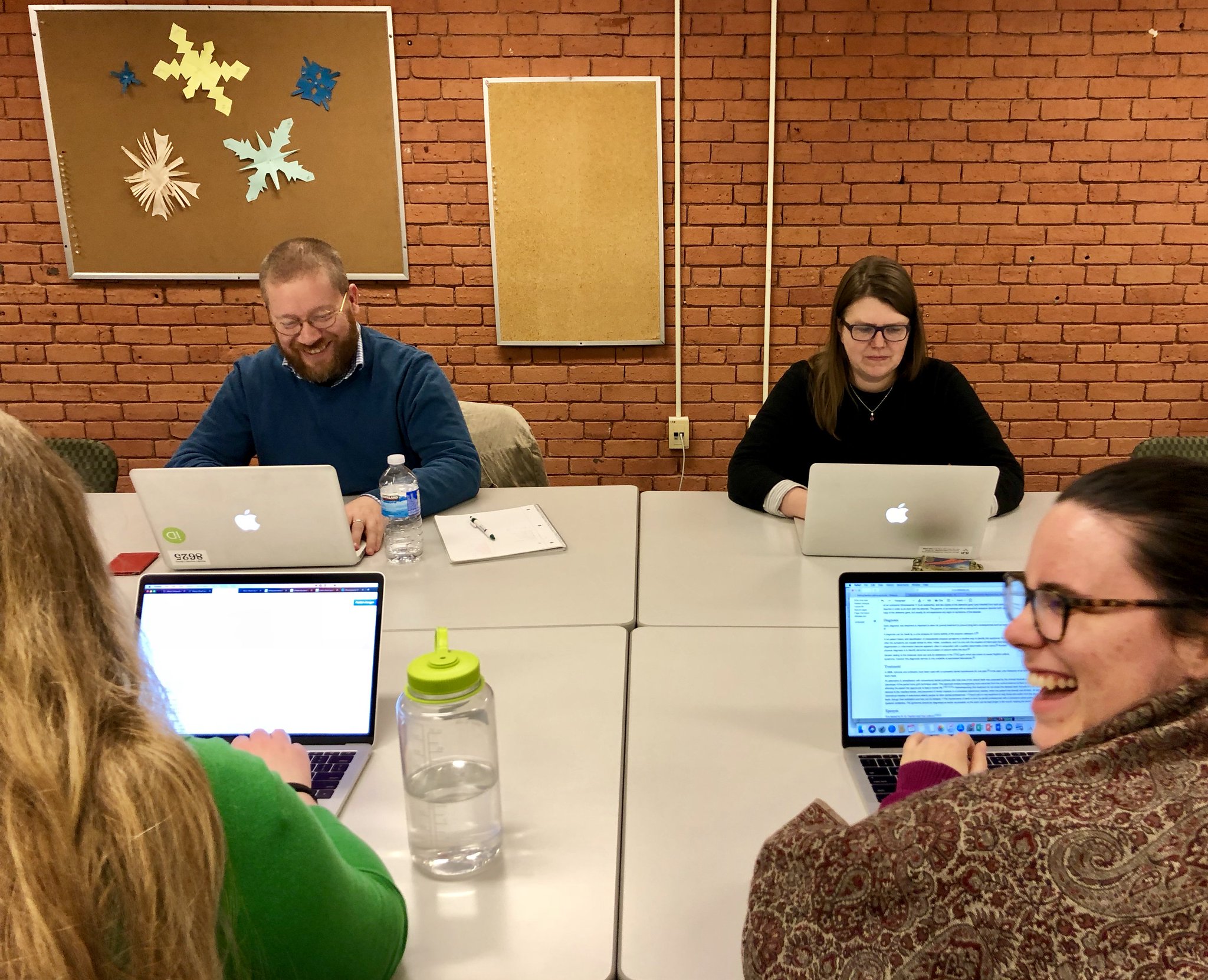





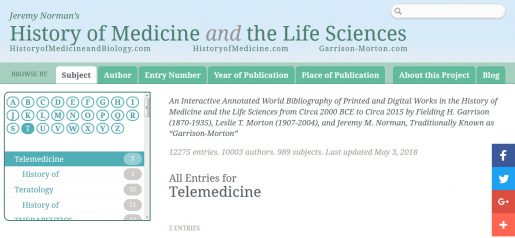
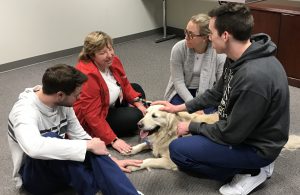 Many university campuses offer pet therapy programs to reduce stress and promote student well-being, particularly around exam times when stress levels rise. Research exists to show the short-term psychological benefits of such therapy sessions. Therefore, HSLS recently collaborated with our 2nd year medical student well-being taskforce to pilot Falk Library as a location for dog therapy. In February and March, HSLS offered three dog therapy sessions, scheduled around study for the United States Medical Licensing Examination (USMLE) Step 1 medical board exams. Total attendance for all sessions reached nearly 60 and informal feedback was extremely positive, prompting us to offer another session open to all health sciences students in April, coordinated near final exams.
Many university campuses offer pet therapy programs to reduce stress and promote student well-being, particularly around exam times when stress levels rise. Research exists to show the short-term psychological benefits of such therapy sessions. Therefore, HSLS recently collaborated with our 2nd year medical student well-being taskforce to pilot Falk Library as a location for dog therapy. In February and March, HSLS offered three dog therapy sessions, scheduled around study for the United States Medical Licensing Examination (USMLE) Step 1 medical board exams. Total attendance for all sessions reached nearly 60 and informal feedback was extremely positive, prompting us to offer another session open to all health sciences students in April, coordinated near final exams.
